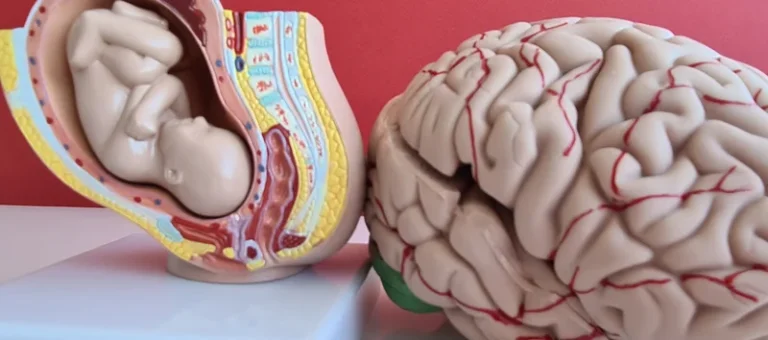
When individuals are intrinsically motivated, they are more likely to feel a deeper commitment to their recovery. This commitment can increase the likelihood of long-term success, as individuals are driven by their values, desires, and personal aspirations. The nature of the “if” part of your statement is important as well.
Be Realistic and Identify the Pros and Cons of Staying Clean
The decision to enter treatment can be daunting and may feel like a last resort. While the process of recovery begins to restore your health, it will demand a good deal of energy to be sure you are staying motivated along the way. The Diagnostic and Statistical Manual of Mental Disorders (DSM) avoids the terms addiction and recovery. Sustained remission is applied when, after 12 months or more, a substance is no longer used and no longer produces negative life consequences. • Developing a detailed relapse prevention plan and keeping it in a convenient place for quick access when cravings hit, which helps guard against relapse in the future. A good relapse prevention plan specifies a person’s triggers for drug use, lists several coping skills to deploy, and lists people to call on for immediate support, along with their contact information.
Provides Structure and Predictability
The times when self-motivation works are when the addict has discovered that there is something more precious than the addiction. It might be a child, a job, life itself, or a personal value such as dignity. Allow for flexibility; there will be https://ecosoberhouse.com/ days when sticking to the routine is more challenging, and that’s okay. Packed full of techniques for fostering intrinsic motivation in education, family, and workplace environments, this is a valuable resource for any individual or counselor.

Stay in control of your schedule
- The power of group therapy during rehab lies in its ability to promote peer support and encouragement, which can be instrumental in preventing feelings of isolation during recovery.
- Benefits of motivational interviewing during rehab are significant in helping individuals overcome addiction.
- Plus, engaging with the sober support community gives access to resources and info which motivate.
- Individuals seeking treatment must ultimately be convinced not only of the dire threat their substance abuse presents to their health and livelihood, but also to the benefits of living a sober life.
- Many individuals struggling with addiction experience mixed feelings about quitting or reducing their substance use.
- Strictly speaking, sobriety is the state of being sober—not being under the influence of alcohol or drugs.
Finding motivation to stay sober can be as challenging as becoming inspired to get sober. But people can stay sober by confiding in loved ones who are emotionally invested in their sobriety, communicating with others in recovery and remembering how difficult life was prior to sobriety. When people struggle with substance abuse problems, family members may argue more often, harbor shame or develop an anxiety disorder. Before committing to a life free of drugs and alcohol, people should understand why it is important to achieve sobriety. They need to learn that addiction is a disease that can hurt their loved ones as much as it hurts them.
Stay Accountable and Monitor Progress
- It could be as little as offering a ride to a meeting or setting up chairs and making coffee, or it could be as much as becoming a sponsor or acting as a guest speaker at a local event.
- These services include counseling, 12-step programs and sober housing.
- The practice of recovery and support of a community that shares your struggles and victories will help sustain your motivation.
- They can be chronic, or they can occur as one-time episodes caused by traumatic life events such as a death or illness in the family, the ending of a marriage, financial difficulty, or other disruptions.
- Researchers have studied the experiences of many people who have recovered from substance use and identified key features of the recovery process.
- In addition, friends and family are some of the most supportive groups we have in our lives.
Although quitting entirely is the best path to wellness, reducing or eliminating the most harmful substance use or behavior is a huge improvement and will greatly reduce the harm caused. It is better to set a goal that you will actually achieve than to plan to quit « cold turkey » and end up relapsing, which can be more dangerous than simply continuing without any changes. Addiction leads to changes recovery motivation in the brain that make quitting more difficult. Fortunately, addiction is treatable and there are things that you can do to improve your success in overcoming your addiction. Learning to “live life on life’s terms” in sobriety means knowing that you will experience good days and bad days. Motivation for your recovery cannot be tied to a reactive state based on moods and circumstances.

Create a Support System for Motivational Recovery
- The following techniques can help to encourage perceptions of autonomy, relatedness, and competence and support positive outcomes in psychotherapy and behavioral change (Ryan & Deci, 2017).
- After all, you can’t hang around your drug dealer or old drinking buddies and expect to remain sober for very long.
- Therapists using MET collaborate with individuals to explore their values, goals, and the discrepancies between their current behaviors and their desired future outcomes.
- This journey is solely yours and despite the fact that you may meet others who are battling with the same disorder, their experience is not your experience.
Think About the Health Risks of Drug Use
Get the FREE Mirror Football newsletter with the day’s key headlines and transfer news straight into your inbox


